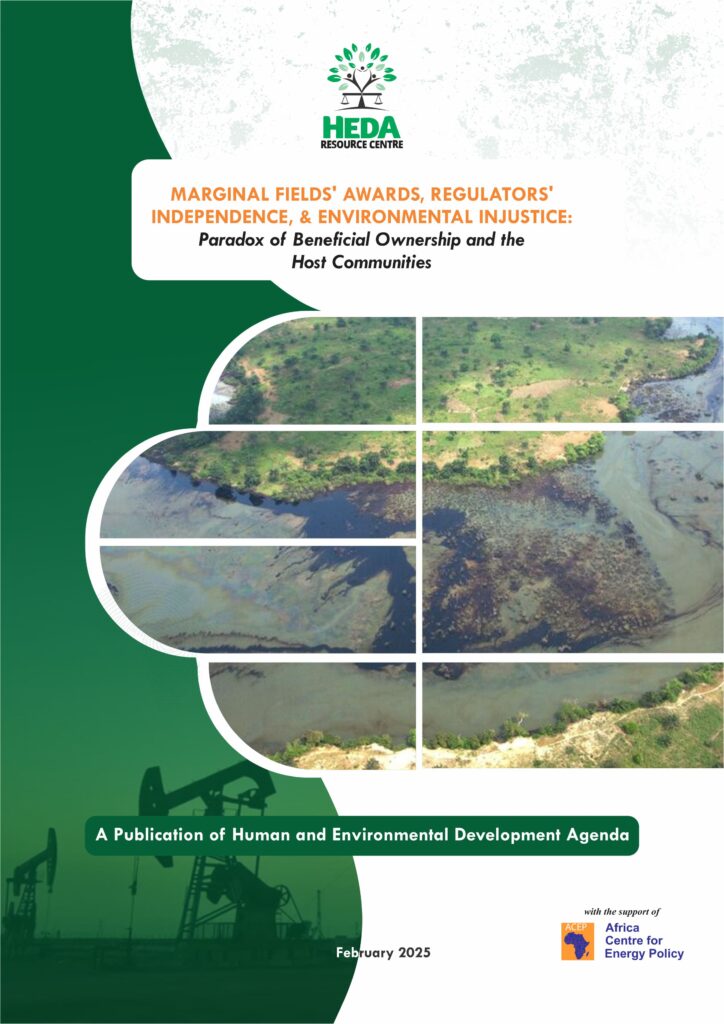The Human and Environmental Development Agenda (HEDA Resource Centre) has issued a sobering assessment of Nigeria’s judicial system in its fifth Leadership Approval Rating (LAR) report, “Voice for Justice: A civic Lens on Nigeria’s Judicial System – Documenting Public Experience Opinions, and Reform Demands.
The recently and widely-reported launch in Lagos, the report paints a stark portrait of public disillusionment with judiciary and demands urgent, far-reaching reforms. Based on a nationwide survey of 1,357 Nigerians across the 36 states and the Federal Capital Territory, the findings reveal widespread perception of corruption, inaccessibility, and political interference within the judiciary.
HEDA’s Executive Secretary, Sulaimon Arigbabu, described the report as “a mirror held up to power,” reflecting the lived experience of citizens rather than abstract statistics. The key findings of the report include: Only 12% of the respondents rated the judiciary as highly accessible while 36.5% described accessibility as low. Half of those surveyed had never interacted with the courts, and when interaction occurred, they were mostly administrative such as obtaining affidavits or settling land disputes, rather than seeking substantive justice. Nearly half (49%) submitted to paying or “sorting” court officials, and 65.4% believed judicial corruption is high or extremely high.

Beyond corruption and inefficiency, the judiciary was also seen as complicit in broader rights violations: 60% of respondents accused it of enabling police abuses and imposing excessive bail conditions. To address these challenges, the report calls for a comprehensive reform agenda including full judicial autonomy and restructuring of the NJC, improved pay, welfare, and security for judges, stronger anti-corruption enforcement, greater transparency, such as livestreamed court proceedings and the use of body-worn cameras, among others.
Arigbabu stressed that the recommendations are not optional, but necessary steps to restore public trust and uphold democracy. He emphasized that many reforms require not new policies, but better applications of existing rules, such as reducing unnecessary adjournments and ensuring timely reviews of remand orders.
Speaking at the launch, HEDA’s Senior Program Consultant, Sina Odugbemi urged civic actors, media, and citizens to intensify efforts in exposing corruption and advocating for change. “Corruption is everywhere, and we must expose it. We need journalism that digs deeper and citizens who demand accountability.” he said.
HEDA’s Chairman, Olanrewaju Suraju, echoed these sentiments, affirming HEDA’s commitment to strengthening Nigeria’s institutions. “This report is a call to action. Public instituitons must be answerable to the people they serv. Together, we can rise to the challenge and transform the judiciary for the better.”
As Nigeria’s judiciary stands at a crossroads, the message from citizens is clear: reforms are urgently needed and the time to act is now.



